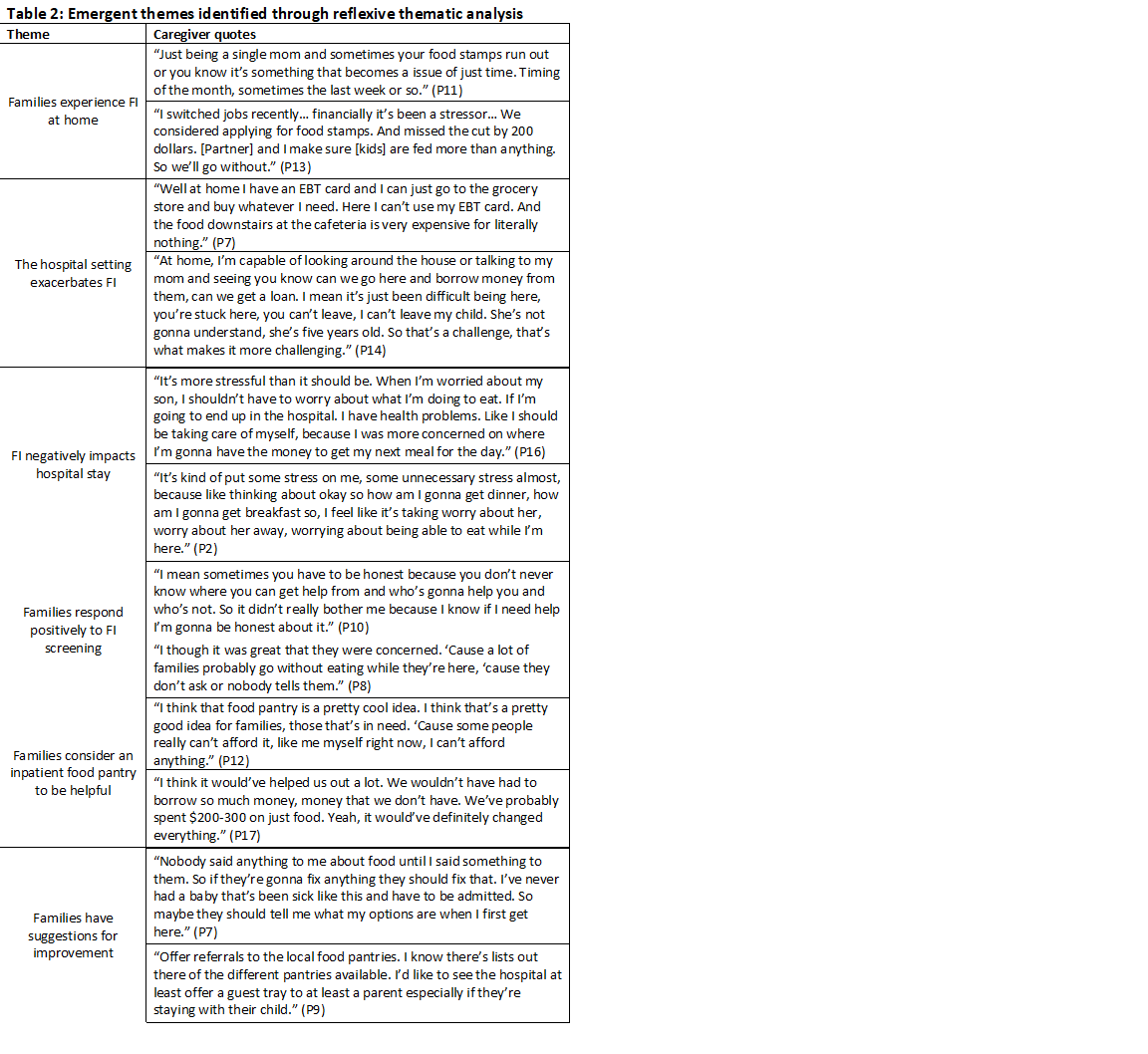Health Equity/Social Determinants of Health
Health Equity/Social Determinants of Health 10
596 - Caregiver Perceptions of a Pediatric Hospital-Based Food Pantry and Food Insecurity Screening Tool
Publication Number: 596.411
- LD
Leila H. DeWitt, DO, MA (she/her/hers)
Pediatric Hospitalist
Wake Forest Baptist Health - Brenner Children's Hospital
Winston Salem, North Carolina, United States
Presenting Author(s)
Background:
Food insecurity (FI) is a persistent issue in the US with negative effects on physical, mental, and emotional health. Advocates and providers are increasingly instituting and normalizing FI screening in outpatient settings. The experience and potential impact of inpatient FI is poorly understood.
Objective:
To assess perspectives of caregivers on FI screening in a pediatric hospital and explore perceptions of a hospital-based food pantry.
Design/Methods: This qualitative study used semi-structured interviews to understand caregiver perceptions of FI, an inpatient food pantry, and a FI screening tool. An inpatient FI screening tool was developed evaluating if caregivers skipped meals, ate less, or felt hungry without food access during the hospitalization. An affirmative response to any question was a positive screen. Eligible caregivers included English and Spanish speakers who presented with their child in the pediatric unit and screened positive for FI during admission. Interviews were recorded, transcribed, and de-identified. Two investigators reviewed the first 5 transcripts to develop a codebook. Transcripts were coded independently by two investigators, meeting weekly to compare coding for each transcript and iteratively adjust the codebook, with discrepancies resolved via consensus. Emergent themes were identified using the prinicples of reflexive thematic analysis. Interviews continued until thematic saturation.
Results: 19 caregivers completed semi-structured interviews, of whom the majority were mothers (74%); (Table 1). Participants identified as White (47%), Black (31%), and Hispanic (10%). All caregivers were willing to accept food from the food pantry. We identified several emerging themes: (1) families experience FI at home, (2) the hospital setting exacerbates FI for caregivers, (3) families’ lack of food access negatively impacts their hospital stay, (4) families generally respond positively to being asked about FI during the admission, (5) families consider an inpatient food pantry to be a helpful resource, and (6) families gave suggestions to improve the hospital stay for families with inpatient FI (Table 2).
Conclusion(s):
The hospital setting presents unique challenges, including exacerbation of FI and subsequent mental and physical impacts. Screening for inpatient FI and offering an inpatient food pantry provide opportunities to improve hospitalizations for caregivers of pediatric patients. Further studies should examine provider perspectives to understand the impact of FI on interpersonal relationships with hospitalized families..png)

